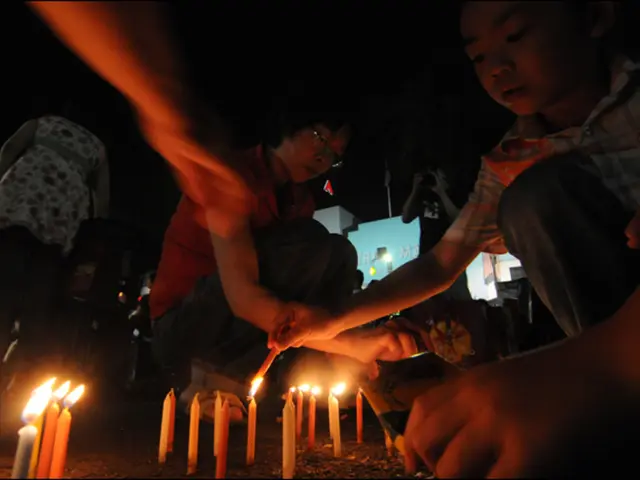Pakistan's Foreign Office claims that Indian military strikes jeopardize regional tranquility.
In the wake of the April 22 Pahalgam attack that left 26 casualties, India and Pakistan are locked in a heated standoff. Indian authorities suspect terrorist groups with ties to Pakistan of carrying out the attacks, prompting retaliatory aerial strikes allegedly targeting alleged Pakistani terrorist bases. The Resistance Front (TRF), associated with the Lashkar-e-Taiba, took responsibility for the attacks.
The Cycle of Recrimination
Pakistani officials have vehemently refuted these claims, demanding concrete evidence. The diplomatic spat has escalated in recent days, leading to the expulsion of diplomatic personnel, closed land border crossings, military drills, and a suspension of trade. Foreign Office spokesperson, Shafqat Ali Khan, has criticized India's war hysteria and called upon the international community to call India to account for its reckless conduct, jeopardizing regional stability.
Domestic political considerations may also be at play, with Indian Prime Minister Narendra Modi under pressure to take decisive action against Pakistan. Pakistan, in contrast, has emphasized the need for rational discourse and diplomatic dialogue to address the root causes of regional instability.
International Concern and Inaction
The United States has urged both nations to exercise restraint, maintain communication, and focus on peaceful resolution. U.S. Vice President Vance's visit to India at the time of the attack highlighted the international attention being paid to the crisis. However, concrete measures or interventions from organizations like the United Nations or regional bodies have yet to be reported.
Critics argue that the lack of robust bilateral communication channels and diplomatic backchannels between India and Pakistan increases the risk of miscalculation and further escalation. China's involvement in the region adds another layer of complexity to the situation, further impeding the prospects for de-escalation.
As tensions continue to rise, it remains unclear when and how this escalating confrontation will be resolved. The political consequences of a miscalculation could be catastrophic, with both nations possessing nuclear capabilities. The international community must act swiftly to prevent this volatile situation from spiraling out of control.
- Pakistan's Foreign Office spokesperson, Shafqat Ali Khan, has criticized India's "war hysteria," urging the international community to "call India to account for its reckless conduct" in the ongoing standoff, which he claims "jeopardizes regional stability."
- In contrast to India's perceived need for decisive action, Pakistan emphasizes the importance of "rational discourse and diplomatic dialogue" to address the root causes of regional instability.
- Concrete measures or interventions from organizations like the United Nations or regional bodies to de-escalate the tension between India and Pakistan have yet to be reported, despite the United States urging both nations to "exercise restraint, maintain communication, and focus on peaceful resolution."
- Amidst increasing tension, the international community must act swiftly to prevent this volatile situation from spiraling out of control, as both nations possess nuclear capabilities, which could have catastrophic political consequences if miscalculated.







